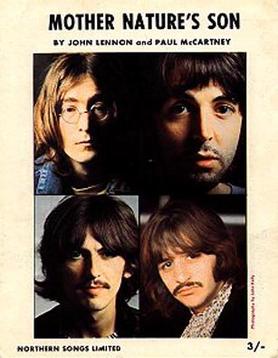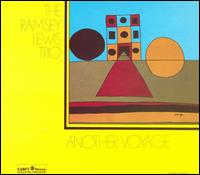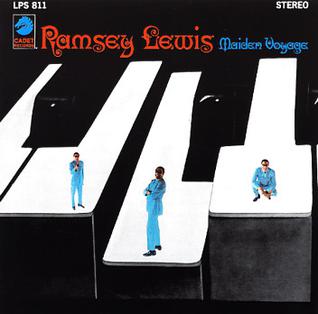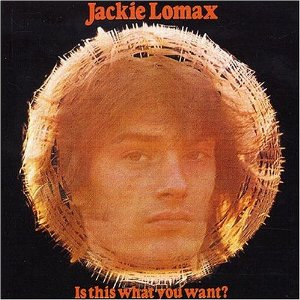
Minnie Julia Riperton Rudolph was an American soul singer and songwriter best known for her 1975 single "Lovin' You", her five-octave vocal range, and her use of the whistle register.

Switched-On Bach is the debut album by the American composer Wendy Carlos, released in October 1968 by Columbia Records. Produced by Carlos and Rachel Elkind, the album is a collection of pieces by Johann Sebastian Bach performed by Carlos and Benjamin Folkman on a Moog synthesizer. It played a key role in bringing synthesizers to popular music, which had until then been mostly used in experimental music.

Rotary Connection was an American psychedelic soul band, formed in Chicago in 1966.

Electronic Sound is the second studio album by the English rock musician George Harrison. Released in May 1969, it was the last of two LPs issued on the Beatles' short-lived Zapple record label, a subsidiary of Apple Records that specialised in the avant-garde. The album is an experimental work comprising two lengthy pieces performed on a Moog 3-series synthesizer. It was one of the first electronic music albums by a rock musician, made at a time when the Moog was usually played by dedicated exponents of the technology. Harrison subsequently introduced the Moog to the Beatles' sound, and the band featured synthesizer for the first time on their 1969 album Abbey Road.

Maurice White was an American musician, best known as the founder, leader, main songwriter and chief producer of the band Earth, Wind & Fire, also serving as the band's co-lead singer with Philip Bailey.

"Dear Prudence" is a song by the English rock band the Beatles from their 1968 double album The Beatles. The song was written by John Lennon and credited to the Lennon–McCartney partnership. Written in Rishikesh during the group's trip to India in early 1968, it was inspired by actress Mia Farrow's sister, Prudence Farrow, who became obsessive about meditating while practising with Maharishi Mahesh Yogi. Her designated partners on the meditation course, Lennon and George Harrison, attempted to coax Farrow out of her seclusion, which led to Lennon writing the song.

"Mother Nature's Son" is a song by the English rock band the Beatles from their 1968 double album The Beatles. The song was written primarily by Paul McCartney, and credited to Lennon–McCartney. It was inspired by a lecture given by the Maharishi Mahesh Yogi while the Beatles were in India. The same lecture inspired Lennon's song "Child of Nature", the tune of which he later re-used for "Jealous Guy". Although credited to the group, the song was performed by McCartney alone, while the other Beatles were working on other "White Album" songs.

"Cry Baby Cry" is a song by the English rock band the Beatles from their 1968 double album The Beatles. It was written by John Lennon and credited to the Lennon–McCartney partnership. The coda of the song is a short segment referred to as "Can You Take Me Back", written by Paul McCartney, which was actually an outtake from the "I Will" session.

"Julia" is a song by the English rock band the Beatles from their 1968 double album The Beatles. It is performed as a solo piece by John Lennon. The song was written by Lennon about his mother Julia Lennon, who died in 1958 at age 44.

That's The Way God Planned It is the fourth studio album by the American musician Billy Preston, released in August 1969 on Apple Records. The album followed Preston's collaboration with the Beatles on their "Get Back" single and was produced by George Harrison. The title track became a hit in the UK when issued as a single. Aside from Harrison, other contributors to the album include Keith Richards, Eric Clapton, Ginger Baker and Doris Troy.

Rotary Connection is the debut album of the American psychedelic soul band Rotary Connection. It was released in 1968 on Cadet Concept Records. The album rose to No. 37 on the Billboard 200 chart.

Another Voyage is a studio album by the Ramsey Lewis Trio issued in 1969 on Cadet Records. The album peaked at No. 5 on the Billboard Top Jazz Albums chart and No. 34 upon the Billboard Top R&B Albums chart.
Charles Stepney was an American record producer, arranger, songwriter and musician. Stepney is noted for his work with artists such as The Dells, Ramsey Lewis, Rotary Connection and Earth, Wind & Fire.

Don't It Feel Good is a 1975 funk/jazz-funk album by Ramsey Lewis released on Columbia Records. The album peaked at No. 3 on the Billboard Top Jazz Albums chart and No. 5 on the Billboard Top Soul Albums chart.

The Piano Player is a jazz album by Ramsey Lewis, released in March 1970 on Cadet Records. The album reached No. 9 on the Billboard Best Selling Jazz LPs chart.

"Sun Goddess" is a smooth soul song by jazz pianist Ramsey Lewis featuring the band Earth, Wind & Fire issued as a single in 1975 on Columbia Records. The song peaked at No. 20 on the Billboard Hot Soul Singles chart.

Maiden Voyage is an album by jazz pianist Ramsey Lewis which was recorded in 1968 and released on the Cadet label. The album peaked at No. 10 on the Billboard Top Jazz Albums chart.

The Place I Love is the debut album by English vocal duo Splinter, released on Dark Horse Records in September 1974. It was the first album released by the Dark Horse label, which was owned by George Harrison, who also produced the album. Recording sessions took place at Harrison's Friar Park home studio in Oxfordshire and featured extensive musical contributions from Harrison, on guitar, keyboards and other instruments, as well as participants such as Gary Wright, Billy Preston, Jim Keltner and Alvin Lee. "Costafine Town", the first single from the album, was a top-twenty hit in the United Kingdom and other countries.

Is This What You Want? is the debut album by English rock and soul singer Jackie Lomax, released in 1969 on the Beatles' Apple record label. It was produced by George Harrison and features contributions from Harrison's Beatles bandmates Paul McCartney and Ringo Starr. The album includes Lomax's debut single for Apple, the Harrison-written "Sour Milk Sea". The US version added "New Day", which was produced by Lomax and released as a non-album single in Britain.
The Soulful Strings were an American soul-jazz instrumental group formed in Chicago in 1966. Predominantly a studio band, the project was created and led by Richard Evans, a staff producer and musical arranger with the Chess Records subsidiary Cadet Records.

















